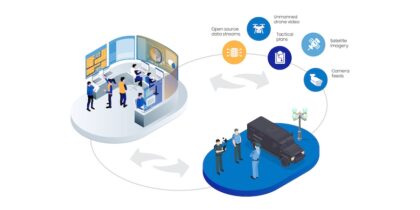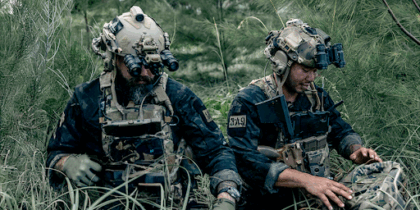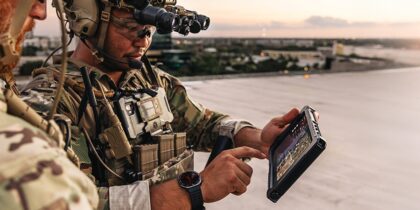That’s a wrap on another great AFCEA West. As we take time after the event to reflect, it’s clear that this year’s conference brought to the forefront a number of trends and issues that we’ve been hearing about from federal agencies over the last few months — particularly how new emerging threats and technologies are fundamentally changing operations and priorities — from the office to the battlefield.
Data Security: The Key to Mobile Productivity in DoD
First and foremost, we heard a lot of discussion about how data protection insecurities continue to grow. When Todd Maxwell, Business Development & Innovation, Federal and Public Safety at Samsung, presented to attendees this week, he warned, “[Hackers] know me better than my wife,” referring to his PII being compromised in the OPM breach of 2015. And while this statement may seem shocking, it underscores just how vulnerable government and personnel data is in this new era of cyber warfare.
Some of the most looming emerging threats are coming from the proliferation of endpoints. As cited in Signal, Vice Adm. Jan Tighe, USN, deputy chief of Naval Operations for Information Warfare (N2N6), noted in her keynote address, “We need to have sensors, weapons and platforms that can talk to each other.” These defense systems are critical to our national security, but at the same time, new endpoints — particularly internet-connected devices and sensors — increase the threat surface area and potential for backdoor vulnerabilities.
Digitize Your Government Agency
Get this guide to drive collaboration, boost productivity and ensure security in the public sector. Download Now
In this new age of information warfare, data has become a weapon in an environment where the battlefield now extends beyond the ground, air and sea and into cyberspace. Organizations must consider new approaches to keep all of their systems, weapons and devices secure from enemy hands. Whether they are implementing a desktop-like experience with a phone to enhance productivity, or protecting critical information on mobile devices, or even evaluating Common Access Card (CAC) replacement strategies that can more effectively manage and secure personnel identities, agency leaders need to understand and implement solutions for keeping data secure, from headquarters to the mission edge.
Mobile and Artificial Intelligence Join Forces for Immersive Training
Another disrupting force raised at AFCEA West that must be addressed is artificial intelligence (AI). As Robert Ackerman reported from the event, “AI will be the guiding force in future militaries,” and “Hyperwar, or combat waged under the influence of AI, already is beginning to intrude on military operations.” AI is an enormous opportunity, particularly when applied to prepare personnel in combination with immersive training experiences.
We’re on the cusp of realizing what’s possible with virtual reality (VR) technologies. As visitors to the Samsung booth experienced first-hand, the mobile immersive ecosystem — from Samsung Gear VR to 4K 3D 360-degree cameras and AI-powered content — is delivering more realistic and cost-effective immersive training than ever before. Whether helping military forces navigate combat scenarios or showing a flight mechanic how to perform maintenance on a drone, the combination of mobile and AI is reshaping today’s training environments.
The final key takeaway from the show is that agency leaders must act quickly to keep pace with rapidly evolving threats and the changing nature of warfare. As Marine Corps Commandant Gen. Robert B. Neller, USMC, said in the final keynote session, “The adversary out there is making big investments.” We need to stay a step ahead not just in technology, but with talent, policy and personnel education.
Miss us at AFCEA West? Learn more about how our government solutions are helping agencies better navigate the seas of change and address core mission needs.









